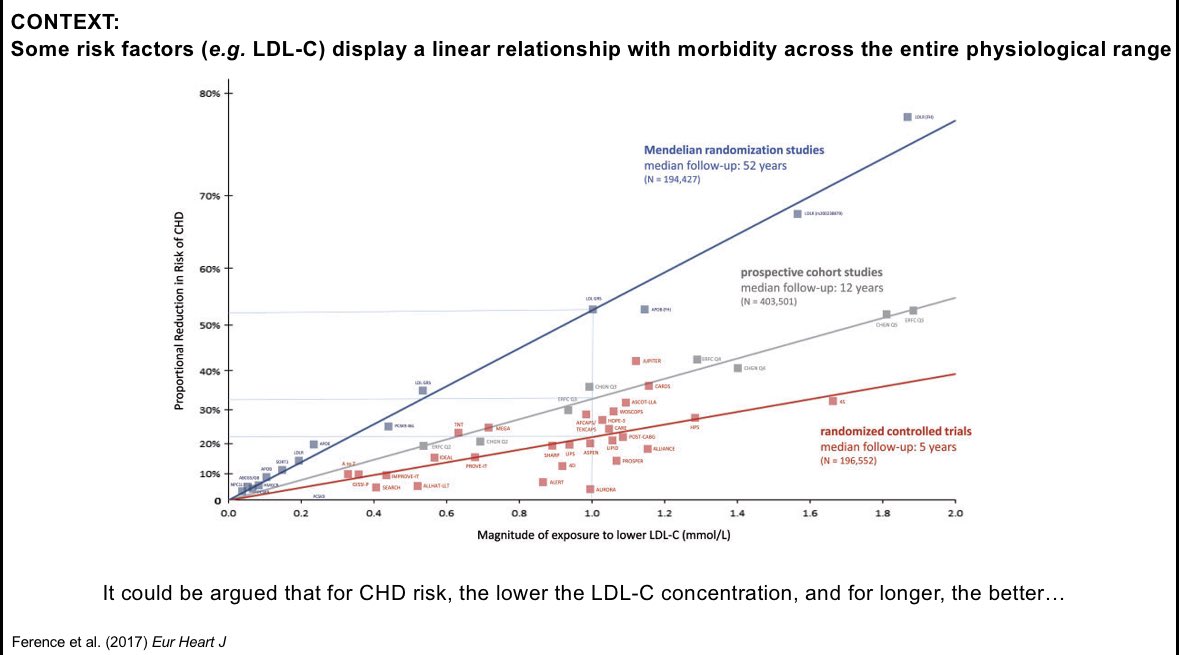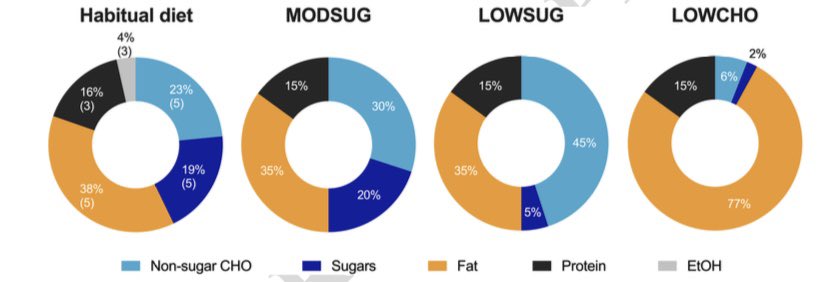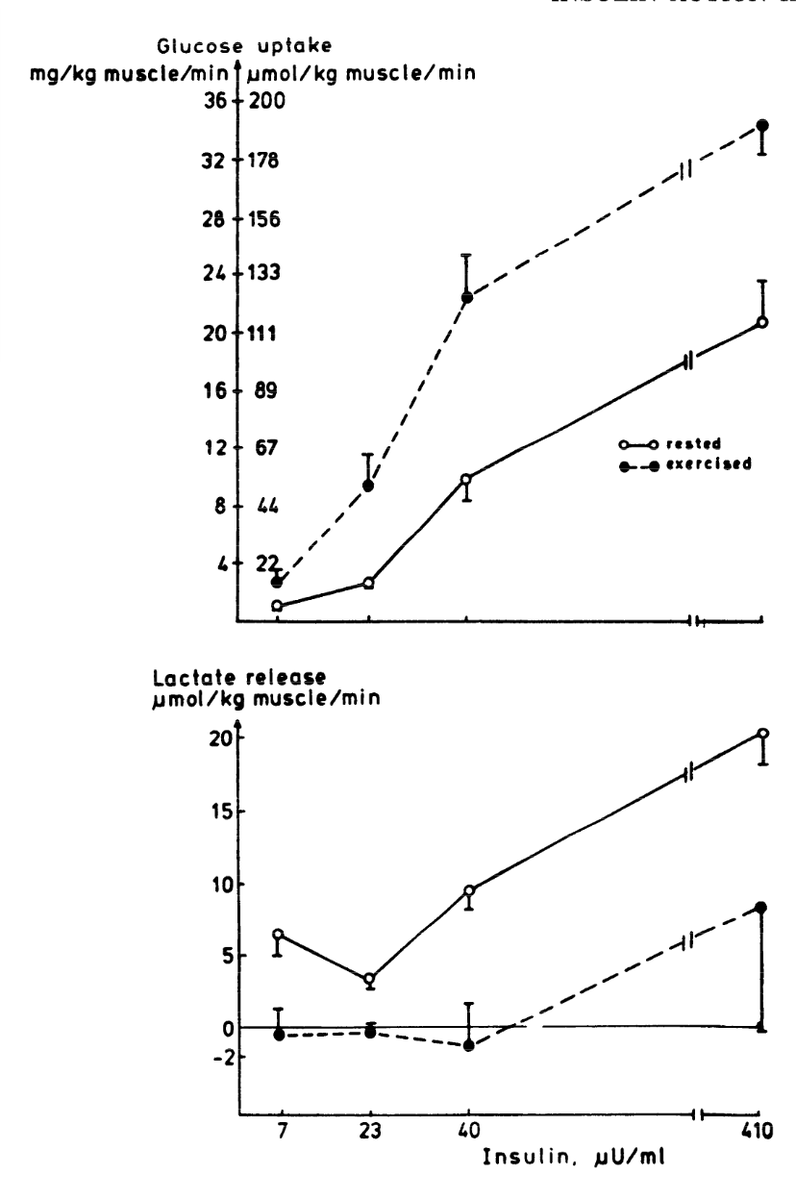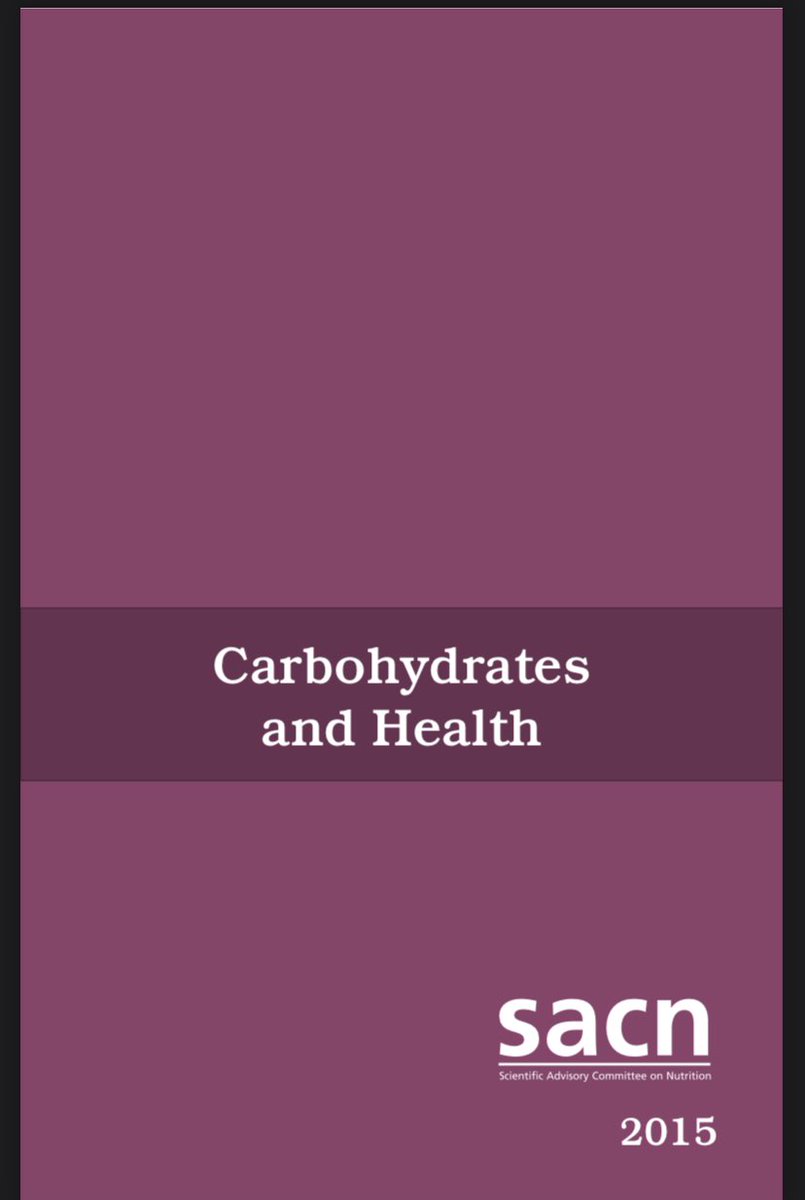Should people be concerned with blood glucose concentrations if they don’t have prediabetes or diabetes?
1/10
#glucose #health #biohack #science #metabolism #cgms #hba1c #sugarspikes
1/10
#glucose #health #biohack #science #metabolism #cgms #hba1c #sugarspikes
For context, the relationship between LDL-cholesterol concentration and coronary heart disease risk appears linear across the entire physiological range
What about glucose?
2/10
What about glucose?
2/10

For glucose, it might depend how it’s measured:
STANDARDISED TESTS (reflect underlying physiology)
-Fasting [glucose]
-2-h [glucose] post-OGTT
FREE-LIVING MEASURES (reflect underlying physiology x acute behaviour)
-HbA1c
-CGMS variables
What do the data show?
3/10
STANDARDISED TESTS (reflect underlying physiology)
-Fasting [glucose]
-2-h [glucose] post-OGTT
FREE-LIVING MEASURES (reflect underlying physiology x acute behaviour)
-HbA1c
-CGMS variables
What do the data show?
3/10
Fasting glucose and mortality risk?
Little evidence that fasting [glucose] relates to risk of death in people without prediabetes or diabetes
4/10
Little evidence that fasting [glucose] relates to risk of death in people without prediabetes or diabetes
4/10

Fasting glucose and morbidity risk?
Little evidence that fasting [glucose] relates to cardiovascular disease in people without prediabetes or diabetes
5/10
Little evidence that fasting [glucose] relates to cardiovascular disease in people without prediabetes or diabetes
5/10

However, those whose [glucose] remains elevated above fasting, 2 h after 75 g oral glucose show higher mortality risk versus people whose [glucose] had returned to fasting.
Does this mean [glucose] matters?
6/10
Does this mean [glucose] matters?
6/10

Possibly but not necessarily.
The OGTT reflects many aspects of physiology
It could be that other aspects of physiology are the causal link to mortality, [glucose] is just a marker.
7/10
The OGTT reflects many aspects of physiology
It could be that other aspects of physiology are the causal link to mortality, [glucose] is just a marker.
7/10
If glucose is causal, then it might be expected that free-living measures would also correlate with mortality or morbidity.
This is because the effect of physiology will be diluted by behaviour
So does HbA1c correlate with mortality?
8/10
This is because the effect of physiology will be diluted by behaviour
So does HbA1c correlate with mortality?
8/10
Little evidence that HbA1c correlates with mortality in people without prediabetes or diabetes (or CVD)
So should people without prediabetes or diabetes care about their glucose under free-living conditions?
9/10
So should people without prediabetes or diabetes care about their glucose under free-living conditions?
9/10

There may be some relevance of glucose within the non-diabetic range for some outcomes (e.g., physical activity, appetite etc.),
but its not yet clear that glucose in free-living conditions is important for hard outcomes of CVD or mortality
10/10
but its not yet clear that glucose in free-living conditions is important for hard outcomes of CVD or mortality
10/10
• • •
Missing some Tweet in this thread? You can try to
force a refresh

 Read on Twitter
Read on Twitter


















